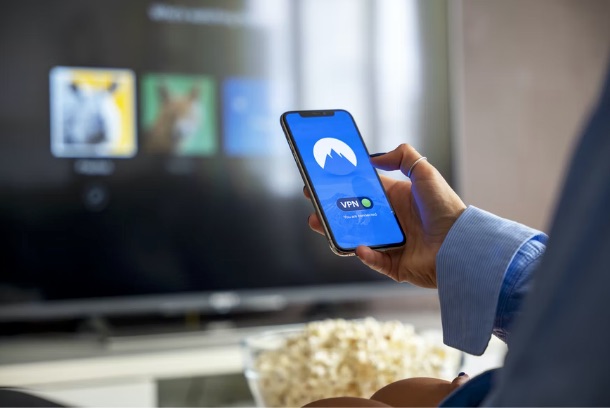Also Interesting
Guide to protection from cybersecurity risks in Canada

When the entire world was shut down, the digital world was afloat and how. But at the same time, some malicious acts were being warranted by suspicious scammers all across the world. The risks in Canada, however, catapulted into another epidemic of some kind.
Basically, scammers and hackers were in full swing during the COVID-19 pandemic as they continued to exploit victims by tricking them into falling prey to malware scams. This was done viciously via phishing campaigns and compromised credentials. Of course, other methods were also optimized, resulting in havoc on the digital space.
It’s one thing to suggest that cybercrime was at an all-time high during the pandemic and a completely different story when you look at the facts. Did you know that roughly 57% of Canadians have reported falling prey to cybercrime activity during the first year of the pandemic?
These schemes were malicious to another level and led to all sorts of disruptive outputs for individuals as well as businesses and organizations. The most common victims were the health sector because it was not only under the spotlight at the time but also under tremendous amounts of pressure.
If only, Canadians had used at the time, the problem wouldn’t be as big as it turned out to be in the end. VPNs are the best tool to protect yourself against online threats. However, those who’re running low on budget can get free VPNs to secure your privacy in Canada by VPNRanks.
Mind you, free VPN services might not work the same way as the premium ones. They may lack security features, server infrastructure, or limit you with bandwidth cap or whatnot. If you want to way have limitless security without any compromises, we always suggest premium VPNs.
But if you still opt for a free VPN service, make sure to get it from a trusted source, as mentioned above. In this article, we will discuss how Canadians can protect themselves from such cybercrime activities and run their operations online smoothly.
The 3 Most Common Types of Cyberattacks on Canadians
When you get to start studying the world of cybercrime and digital intricacies, you’ll come to the realization that cyberattacks are extremely complex and difficult to pull off. They are also the most common form of criminal activity in the current day of digital supremacy.
Once you understand that, you’ll be interested in knowing the most common types of cyberattacks that were being targeted at Canadians during the pandemic. Well, we have explained all three for you below.
Health Sector – Brutal Ranson Attacks
As we said earlier, the pandemic was a rough period for Canada as its digital space was a constant target of cybercrime activity. Now, the health sector took a massive beating as it was being targetted for ransomware regularly. In fact, these attacks were elevated to new heights, and honestly new lows, when they held patient medical records and medical research. The attempts were made to hijack operating devices and steal information to commit fraud on hospitals, labs, and clinical funding.
Relief Payments Were Stolen
GCKey is an online portal local to the Canadian Government that the hackers targeted to steal all the relief payments transferred through the credentials stuffing. Wondering how these attacks occur so easily? Well, there’s always a loophole in the system that these hackers find out so efficiently. These hackers opted for stolen usernames and passcodes that were made available on a variety of websites.
This information was then used to find the email accounts, and tracking was done via similar log-in credentials. This was made possible since these websites don’t seek the two-factor authentication key.
This is exactly why online privacy should be taught in school. There are so many ways you could at least increase your privacy online and protect yourself from compromising and vulnerable situations. If only people understand the importance of using fake email addresses while surfing third-party websites or shopping online.
And if only, these sites conducted two-factor authentication models, such advances would never be made in the world of hacking and malware.
Fake COVID-19 Tracing Apps
Now this one was not done without planning due to the sophisticated nature of the malware. This was obviously a massive ransomware threat that played with the sensitivity of the situation and the vulnerability of the victims at the time. People were obviously tricked into believing that there was an app that could help them trace whether or not they have been in contact with a person carrying the COVID-19 bodies.
It obviously worked because people ended up downloading it, which eventually encrypted their data and locked them out of their own devices. Now the only way they were given access to their device again was by paying the ransom.
Of course, these attacks are pre-planned and attack organizations targeting confidential data, funding, and much more. Thus, it’s best to practice protection and apply filters and security checkups regularly.
How to Increase Protection and Secure Yourself from Cybercrime?
Now that we’re made aware of the malicious activities that go down when we put our guard down, we’re prepared and enlightened enough to know that cybersecurity is a matter of priority. And so, here are some ways you can ensure utmost protection and safety online.
Backup Infrastructure
The most important method to implicate here is to have a backup infrastructure. This is extremely important for businesses and industries where information is power. If you have a backup infrastructure in place, you wouldn’t have to worry about paying ransom to gain back its access.
Subscribe To A VPN
By investing in a VPN, you can solve many issues simultaneously. The most crucial gift that a VPN offers is that of encryption and security. If you have subscribed to a premium VPN, no matter what you do online, your presence will be protected at all costs.
You may be tempted to use a free VPN service, but they don’t perform as efficiently as the premium ones. Besides, who are we to complain? We are not paying for it, or are we? Hence, your safest bet is to trust a legitimate and premium VPN service provider for robust and utmost security.
Keep Different Passwords
This is obviously one of those nerdy tips out there but an essential one at that. We touched bases with this tip earlier but it must be emphasized once again due to the level of significance it brings. If you have different passwords for different accounts online, it will be difficult to track your secured personal information and trap you into hacking or ransomware.
Two-Factor Authentication
Alway enable and activate the two-factor authentication method on your online accounts. This is a security measure that functions as a second layer of protection and gives you time to gain access back. This trick quickly notifies you if your account is ever vulnerable to threats.
In Conclusion
Online security is of utmost importance in this modern-day age. You’re constantly being threatened with extortion and ransomware and you must heighten your security measures to ensure safety. By following the tips mentioned above, you can upgrade your safety measures and potentially save yourself from embarrassment, anxiety, or any other difficult situation.
Also Interesting
Tips to build an income stream through betting

Financial freedom means different things to different people. Some seek to clear debt or reduce working hours. Others aim to build an income stream separate from traditional employment. Betting is often seen as entertainment, but some treat it as a potential method for financial gain.
It is not a simple route. Success in betting depends on skill, patience, and clear risk control. Casual bets and chasing losses are not the same as long-term planning. Play slots and live casino online deals may attract interest, but true gains require a well-developed approach grounded in calculation,
not luck.
Some treat betting as a serious income project. Like investing, it involves monitoring markets, sticking to rules, and managing emotion. These habits shape outcomes more than any single win or loss.
The Role of Strategy and Market Choice
Building consistent returns from betting starts with discipline. Most success stories come from people who specialize in specific markets. They avoid randomness and focus on repeatable patterns. This reduces risk and allows room for structured decisions.
For some, sports betting offers the best value. Others prefer slots, roulette, or blackjack. Success in each area depends on the ability to control the betting environment. Choosing fixed budgets, setting limits, and logging results all contribute to a more sustainable system.
In Ireland and the UK, platforms now offer a wider range of services. These include analytics tools, stat-based bets, and account dashboards. Markets like Slots and table games in Ireland are especially popular among users who combine short sessions with targeted goals.
Key traits of long-term betting approaches include:
● Specialising in specific games or sports.
● Avoiding emotional or rushed bets.
● Logging every session and reviewing performance.
● Staking only a fixed portion of the bankroll per event.
Psychological Factors and Risk Limits
Financial growth through betting requires mental control. Most losses in gambling happen when people act without a plan. Emotional decisions, such as doubling stakes after a loss, often lead to poor outcomes.
Structured bettors approach the activity with neutral judgement. They view each bet as part of a larger system, not an isolated moment. This approach reduces stress and protects capital. Understanding the limits of control also helps. For example, not every market behaves the same
way each week.
Many betting platforms now offer tools that assist with self-monitoring. These include loss caps, spending summaries, and trend reports. These systems support the user but cannot replace careful thinking. Understanding the connection between strategy risk and decision making can lead to
better choices, both short and long-term.
Economic Context and the Role of Discipline
The idea of using betting as a route to financial freedom often attracts attention during economic stress. Some people look for faster income options when prices rise or wages stagnate. However, betting is not a guaranteed path. It only works when treated as a skill-based discipline, not a
shortcut.
Those who see results often treat betting like a second job. They put in regular hours for research, review performance metrics, and stick to a strict process. This removes guesswork and replaces it with control.
Having multiple sources of income is one part of building financial freedom. Betting can be one of those if it is paired with discipline, patience, and analysis. It is not passive income. It requires consistent effort and awareness.
Sensible Goals and Sustainable Progress
Success with betting should not be measured in jackpots or sudden windfalls. Small, repeatable profits are more stable. The aim is to grow a bankroll slowly, avoid major losses, and learn from every result. This mindset supports steady progress and avoids burnout.
Financial freedom through betting is possible for some. However, it depends on the user, not the platform. Planning, structure, and clear risk boundaries matter more than the type of bet. For those who view betting as a long-term activity rather than a quick fix, it can play a role in building
independence.
As always, betting should be treated with care and clear intent. When combined with focus and habit, it can support a wider plan toward financial freedom. However, without those foundations, it is more likely to create setbacks than solutions.
Also Interesting
Dodgers Hitting Their Stride: Winning Streak Sets Stage for Key Matchups

The Dodgers are on a roll, with nine consecutive victories against the Colorado Rockies and nine out of the last 11 overall. Max Muncy hit a grand slam and drove in six, and Yoshinobu Yamamoto pitched five scoreless innings, giving up only one hit and striking out six to go to 7-6 on the season in the finale on June 26 in Denver. More recently, in the season opener (June 25), the game was a 97 slugfest where Ohtani, Conforto, and Teoscar Hernandez, among others, put their stamp on the scoreboard, with the Dodgers taking home the game thanks to Colorado giving them the opportunity to win it late.
Top Players: Muncy/Ohtani Setting the Pace
Max Muncy has been feisty with the bat, hitting his twelfth homer of the season, his second grand slam in only three contests. Shohei Ohtani keeps producing at the plate and the mound with key home runs and a three-run triple as part of a 13-7 triumph over Washington last week, though he pitched a scoreless inning in his post-surgery outing. Teoscar Hernandez and Michael Conforto have also provided power and reliability, and provided the Dodgers with a strong offensive weapon range.
Squad Depth
The rotation has been boosted by Yoshinobu Yamamoto being the team’s ace, leading the team in April with a 1.06 ERA and still good towards the end of June, most recently against Colorado. The club has an extremely solid starting staff when healthy, with Blake Snell and Tyler Glasnow added to the mix in the offseason. Teoscar Hernandez has contributed clutch offense in the lineup during spring and early regular season after signing a three-year extension before the season began.
Looking at it through betting glasses, having both spectacular pitching and a potent offensive battery makes the Dodgers a heavy moneyline favorite and a good run line bet, particularly against inferior teams. Betting enthusiasts who want to compare the odds and get the maximum return on the Dodgers will find useful websites such as Wincomparator, a solid link to sportsbooks promotions, and a useful tool with real-time updates so that they can stay ahead of the odds.
What Next: Preview of Forthcoming Matchups
After sweeping Colorado, Los Angeles plans on concentrating on future matches at home. They have some prime match-ups with divisional rivals such as the Diamondbacks and Padres (who will provide the most difficult stretch of games in the NL West) as the season progresses. One of the most intriguing games will involve the Dodgers making a second visit to Arizona, a team that has a strong offense, including Cy Young winner Corbin Burnes.
In the meantime, recent Yankees-Dodgers previews indicated that New York would challenge L.A. with its depth as the Yankees were leading MLB in many offensive categories, and with games approaching in later summer, Dodgers fans will hope that Betts, Freeman, and Ohtani will be able to handle it in key moments in June or July.
Outlook: Second Half Positioning
As July approaches, the Dodgers appear to be in shape to continue dominating the NL West. They possess a talented pitching staff, a powerful offense that will depend on depth, and the ability to withstand injuries, which places them within the upper tier of projections, with pundits expecting them to prevail in futures markets towards another deep playoff run. So long as they remain healthy, continue to deliver in crunch time, Los Angeles is a solid step away in the season stretch run.
-

 COVID-192 days ago
COVID-192 days agoOntario man launches new challenge against province’s latest attempt to ban free expression on roadside billboards
-

 COVID-1923 hours ago
COVID-1923 hours agoNew Peer-Reviewed Study Affirms COVID Vaccines Reduce Fertility
-

 Business19 hours ago
Business19 hours agoOttawa Funded the China Ferry Deal—Then Pretended to Oppose It
-

 Alberta2 days ago
Alberta2 days agoAlberta Next Takes A Look At Alberta Provincial Police Force
-

 MAiD21 hours ago
MAiD21 hours agoCanada’s euthanasia regime is not health care, but a death machine for the unwanted
-

 Alberta2 days ago
Alberta2 days agoCanadian Oil Sands Production Expected to Reach All-time Highs this Year Despite Lower Oil Prices
-

 Alberta22 hours ago
Alberta22 hours agoThe permanent CO2 storage site at the end of the Alberta Carbon Trunk Line is just getting started
-

 International2 days ago
International2 days agoPresident Xi Skips Key Summit, Adding Fuel to Ebbing Power Theories





